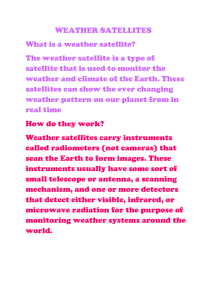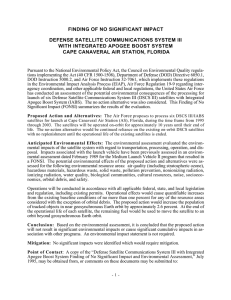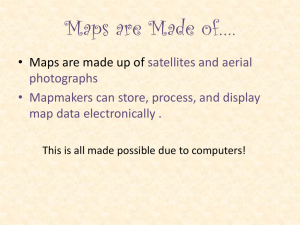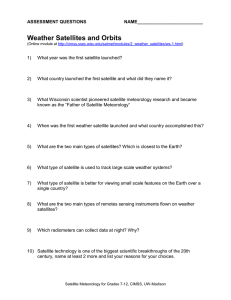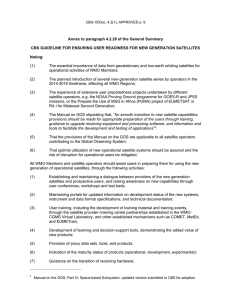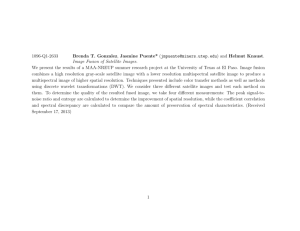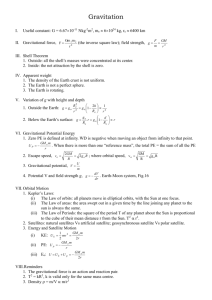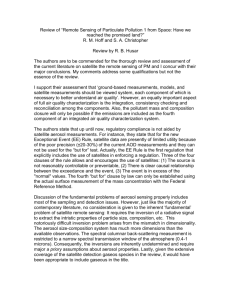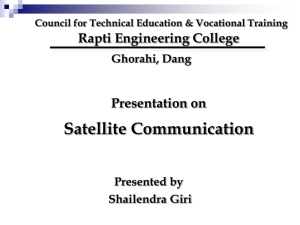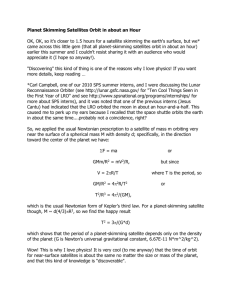PreCalculus Take Home Test 4 DUE: Monday 11/12/07
advertisement
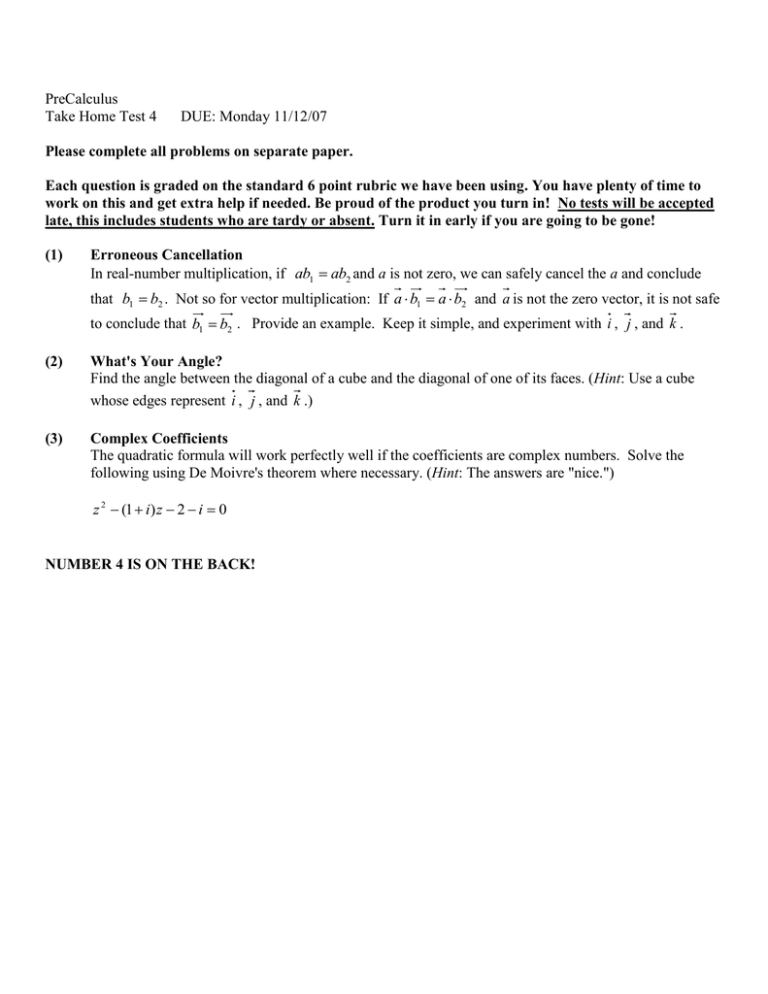
PreCalculus Take Home Test 4 DUE: Monday 11/12/07 Please complete all problems on separate paper. Each question is graded on the standard 6 point rubric we have been using. You have plenty of time to work on this and get extra help if needed. Be proud of the product you turn in! No tests will be accepted late, this includes students who are tardy or absent. Turn it in early if you are going to be gone! (1) Erroneous Cancellation In real-number multiplication, if ab1 ab2 and a is not zero, we can safely cancel the a and conclude that b1 b2 . Not so for vector multiplication: If a b1 a b2 and a is not the zero vector, it is not safe to conclude that b1 b2 . Provide an example. Keep it simple, and experiment with i , j , and k . (2) What's Your Angle? Find the angle between the diagonal of a cube and the diagonal of one of its faces. (Hint: Use a cube whose edges represent i , j , and k .) (3) Complex Coefficients The quadratic formula will work perfectly well if the coefficients are complex numbers. Solve the following using De Moivre's theorem where necessary. (Hint: The answers are "nice.") z 2 (1 i) z 2 i 0 NUMBER 4 IS ON THE BACK! (4) Space Station Two communications satellites are in geosynchronous orbit around earth. (Geosynchronous satellites orbit earth with a period of 1 day, so they don’t appear to move with respect to an observer on the ground.) From a point on the ground, the position vectors to the two satellites are: Satellite 1: p1 18i 5j 12k Satellite 2: p 2 15i 9j 14k The distances are in thousands of miles. These vectors are shown schematically (not to scale) in the given figure. A space station is to be located at point P on the line between the who satellites, 40% of the way from Satellite 1 to Satellite 2. How far will the space station be from Satellite 1? How far will the space station be from the point on the ground? Hint: First find the displacement vector from Satellite 1 to Satellite 2 then find the position vector of point P, where the space station will be located. Then answer the questions.
